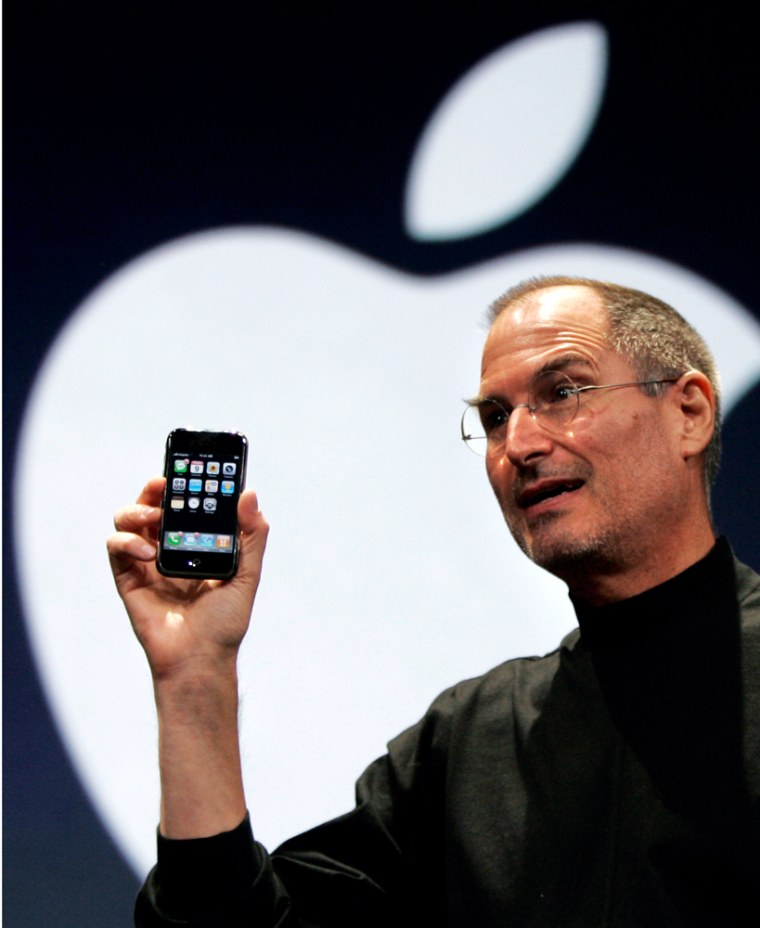In one sense, Apple's iPhone was one of the computing world's worst-kept secrets. But CEO Steve Jobs still managed to surprise his audience when he unveiled the multimedia device.
The blogosphere had been buzzing for months with rumors of some sort of iPod-cell phone combination, and legions of enthusiasts had posted their own imaginative designs online.
But major details were scarce to nonexistent, and even the most plugged-in bloggers and rumor-mill scavengers said they were taken aback by some of the innovations revealed during Tuesday's launch at the annual Macworld Conference and Expo. The touch-screen phone plays and downloads music, surfs the Web and delivers voicemail and e-mail.
"Some of the products people were dreaming up were just insane," said Jeff Gamet, an editor with The Mac Observer online news site. "But once we actually saw the product Apple dropped on us, it was as good if not better than anything we expected."
Even the iPhone's name had surfaced months ago, but most figured it was inaccurate speculation after it was reported that Cisco Systems Inc. held a trademark on the name. But Apple kept it, to everyone's surprise — and was rewarded with a lawsuit filed Wednesday by Cisco.
Cupertino-based Apple has both a rabid fan base interested in its future product plans and a legendary obsession with secrecy. It closely guards the content of Jobs' keynote addresses and has sued bloggers, online journalists and former employees for disclosing confidential new-product details.
Former Apple employees say the company plants fake product names within workgroups to track the source of media leaks. It monitors workers' Internet surfing habits and scolds them if they're visiting too many Apple rumor Web sites during office hours.
Apple spokeswoman Natalie Kerris declined to comment Wednesday.
Even some of Apple's partners on the iPhone — AT&T Inc.'s Cingular Wireless, Google Inc. and Yahoo Inc. — didn't see the actual device until weeks or even hours before Jobs' dramatic keynote unveiling.
Apple's focus on secrecy has been remarkably effective in plugging leaks from within the corporate ranks just enough to generate massive amounts of buzz prior to big product launches.
But some industry observers say Apple could face new threats to its fortress-like secrecy as it increasingly partners with other companies in its bid to become a full-fledged consumer electronics company.
"They keep acquiring more and more partners, and as they do that their ability to keep a cone of silence around the company is becoming more difficult," said Roger Kay, president of Endpoint Technologies Associates Inc.
"They love the secrecy because they get a big bang out of it. But that's going to erode slowly because their partner ecosystem keeps getting bigger all the time," he said.
